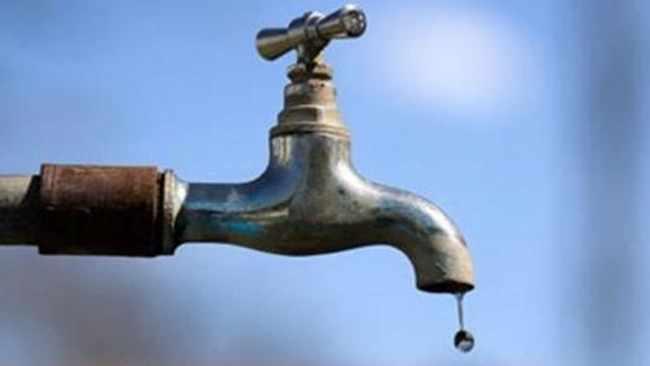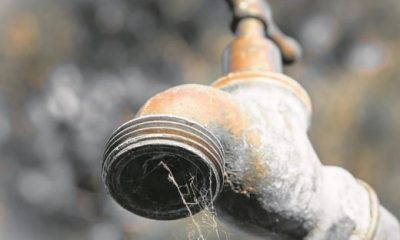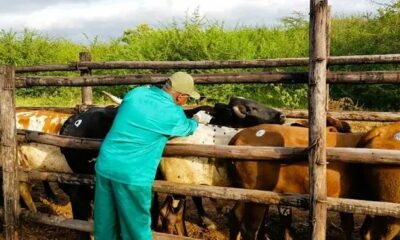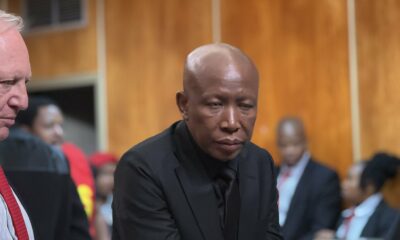Published
8 months agoon
By
zaghrah
Over the past week, there was a collective sigh of relief when Rand Water announced it had completed its major maintenance project ahead of schedule. The B16 project, aimed at upgrading critical infrastructure, wrapped up smoothly and pumping resumed at the Mapleton station. For a moment, it seemed like Gauteng’s water woes were finally getting a breather.
But just as quickly, that relief evaporated — much like the water residents still aren’t seeing in their taps.
Water Returns… But Not To Your Tap
According to Rand Water spokesperson Makenosi Maroo, while the utility did its part, this doesn’t mean water will instantly gush back into every home. Systems need time to recharge, and more importantly, the local municipalities need to do their part — and that’s where things fall apart.
“The supply from Rand Water is back online,” said Maroo. “But the challenges from the municipality to the consumer remain the same.” In plain terms, Rand Water is filling the tanks, but the pipes leading to your kitchen are still full of holes — sometimes literally.
Municipal Failures Run Deep
Residents in areas like Tshwane, Ekurhuleni, Midvaal, Emfuleni, Govan Mbeki, Victor Khanye, and Thembisile Hani have all been left in the lurch. While the bulk supplier is flowing, local systems are still leaking, bursting, or just simply not functioning.
Water CAN’s Ferrial Adam summed it up bluntly: “The municipalities aren’t doing their job. Even with the improved bulk supply, residents will still face intermittent water supply, cuts, and continuous leaks.”
Joburg, she said, is the worst of the bunch. Despite slick presentations and polished turnaround strategies, there’s no meaningful action being taken.
“They know where the problems are. Forty-two leaking reservoirs, twenty flagged as critical, and still — not one tender issued,” Adam said. “You can’t talk about economic growth when your water and power systems are crumbling.”
Shifting the Blame Onto Residents
To make matters worse, instead of fixing the pipes, officials have begun pointing fingers — at the very people affected.
AfriForum’s environmental advisor Marais de Vaal isn’t buying it. He says this blame game distracts from the real culprits: outdated infrastructure, neglected maintenance, and appalling management.
“The public is constantly told to reduce consumption,” said De Vaal. “But this is based on a misreading of data. The problem isn’t that people are using too much — it’s that municipalities are losing water before it even gets to them.”
Illegal connections, leaking mains, and broken meters are hemorrhaging water at a rate that far outweighs household use.
A Lack of Transparency
In a push for accountability, AfriForum submitted information requests to Tshwane, Ekurhuleni, and Johannesburg metros, asking for five years of detailed water data. Only Tshwane responded.
“Why haven’t the others?” asked De Vaal. “This lack of transparency speaks volumes about their willingness — or lack thereof — to address this crisis honestly.”
Broken Systems, Frustrated Communities
The pattern is as predictable as it is frustrating. Rand Water does its part, the system starts to fill, but then everything bottlenecks at the municipal level. Reservoirs remain empty, pipes burst under pressure, and residents are left hauling water in buckets while officials argue over spreadsheets.
Gauteng’s water crisis is no longer just a supply issue. It’s a governance issue. A maintenance issue. A trust issue.
The Real Fix Starts With Local Government
If municipalities want to restore faith and get water flowing consistently, the solution isn’t in flashy PR campaigns or blaming the public. It’s in putting real money into fixing what’s broken — starting with aging infrastructure and ending the cycle of reactive firefighting.
Until then, every drop that Rand Water pumps is at risk of vanishing before it reaches your tap.
Take Action: Demand Transparency and Accountability
If you’re tired of the dry taps and the broken promises, speak up. Attend local council meetings, demand regular updates, and push for infrastructure funding in your community. Water is a basic human right — and it’s time your municipality treated it that way.
Let’s make sure this isn’t just another cycle of fixes with no follow-through. The tap shouldn’t be a gamble — it should be a guarantee.
{Source: The Citizen}
Follow Joburg ETC on Facebook, Twitter , TikTok and Instagram
For more News in Johannesburg, visit joburgetc.com


Joburg races to restore water as dry taps test residents’ patience


Joburg’s Dry Taps And Piles Of Waste Leave Residents Frustrated As Services Slip


Foot-and-mouth becomes a national threat as farmers warn government is losing the race


Will Malema face jail time or a fine? South Africa waits on East London court


Ramaphosa Draws a Line: No Free Pass for Lobbying Foreign Powers Against SA


Diplomatic Lines Tested After US Slams South Africa Over Johannesburg Refugee Raid















